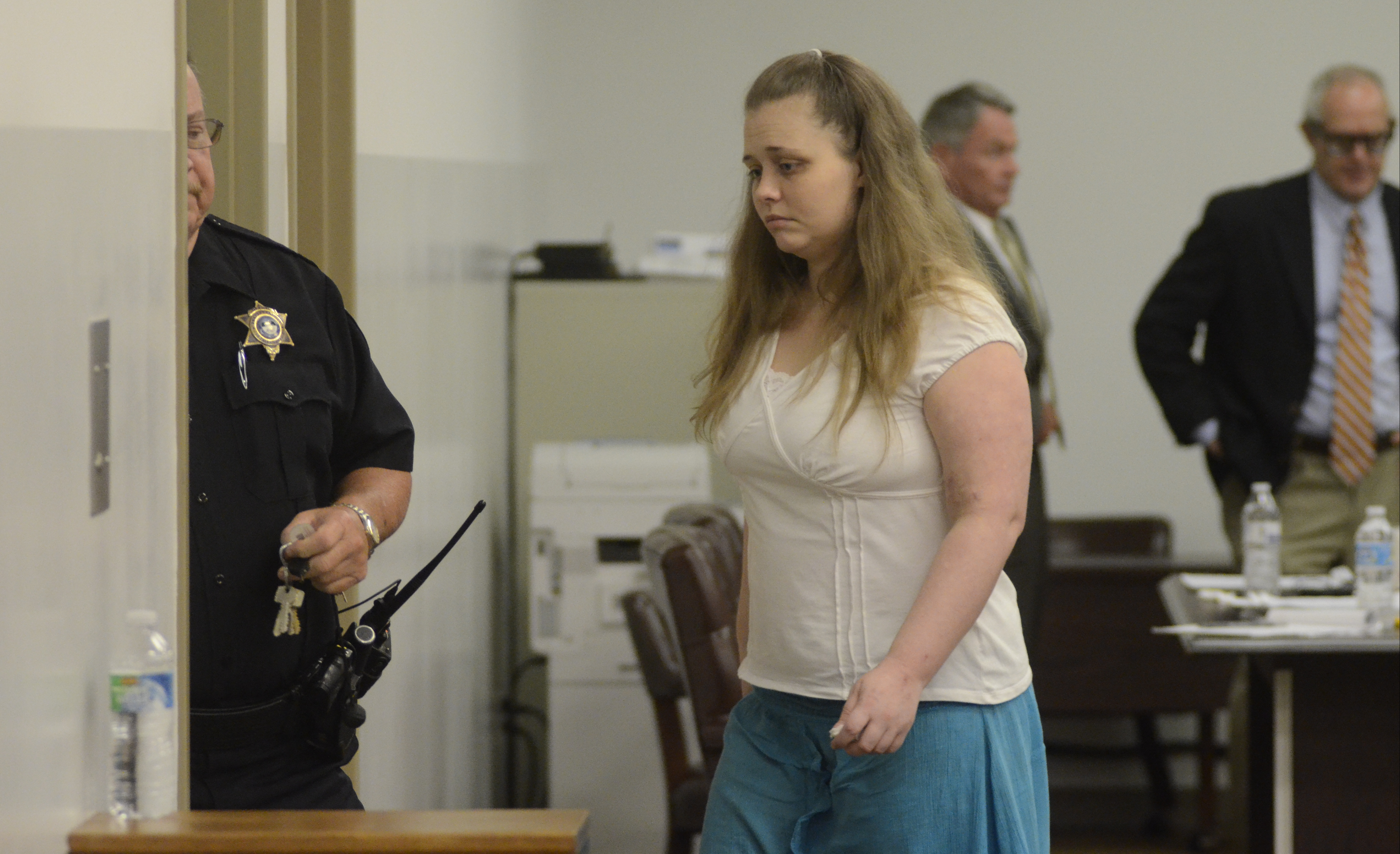Update: Tasha Bates found guilty of first degree murder and aggravated child neglect
Thursday, August 29, 2013
VIDEO
This story is featured in today's TimesFreePress newscast.
Tasha Bates is guilty of first degree murder and aggravated child neglect in her young sons' deaths last year in a searingly hot automobile, a Bradley County jury decided Thursday evening.
Bates, 27, was charged with murder, child abuse and methamphetamine offenses in the deaths of 3-year-old River and 5-year-old Leland last year.
At her trial this week, prosecutors tried to portray her as a neglectful mother, living in a dirty, trash-filled home where prosecutors found traces of heroin and methamphetamine.
Bates' attorneys argued that the evidence could be explained by others visiting the house who were involved with drugs.
Previous story.
One question hung behind the hundreds of others asked during the second day of a Bradley County murder trial:
What kind of mother was Tasha Bates?
The state rested its case Wednesday against Bates, a 27-year-old mother charged with murder, child abuse and meth offenses in last year's heat stroke deaths of her two young sons, 3-year-old River and 5-year-old Leland.
But not before prosecutor Stephen Hatchett showed slides of the cramped house where she lived with her boys, filled with trash and filth. He brought up drug investigators to explain how traces of methamphetamine and heroin were found inside Bates' garage, house and garbage.
Witness Jim Derry, a criminal analyst with Tennessee's meth task force, called Bates' house a "classic meth lab."
But that's not enough to show what kind of mother Bates was, or whether any of her actions were linked to her sons' deaths, Bates' defense attorneys Richard Hughes and Keith Roberts argued.
They raised doubts about how old the drug-related materials could be, and whether there was any way they could be directly linked to Bates. They claimed that many people came and went on the property who were involved in drug activity.
They brought up Bates' mother, Sandy Keith, to explain how the divorced Bates had no job or child support when she moved into Keith's trailer in early 2012.
At one point Roberts asked Bates' aunt, Tracy Honey, to assess Bates' abilities as a mother.
"Tasha was the best mother she knew how to be," Honey said in tears. "Growing up, she never had that childhood. ... She didn't have the stability that she should have had."
Honey was with Bates at the hospitals where each child died, and helped transport the mother to detectives who wanted to question her first after River passed away, then again after Leland's death.
Bates was in no state for questioning, Honey said.
"Any mother that's lost her flesh and blood is not in her right mind," she said.
When pressed by prosecutors about whether Tasha may have lied about the boys, Honey couldn't say.
"There's two people who know the truth," she said. "The good Lord and Tasha."
Much of the morning's testimony centered on heat: How 101-degree temperatures on June 28 could have affected a car and the boys' bodies.
Jan Null, a San Francisco meteorologist who specializes in vehicular overheating deaths, explained how a car acts "like a greenhouse" -- rapidly radiating heat.
On a 103-degree afternoon, the car's interior could have spiked to 120 degrees within 10 minutes, and 144 degrees within an hour.
Roberts challenged Null's credentials, demanding how much his traveling to testify cost taxpayers and at one point asking with disbelief: "[The state] wanted you to come to Tennessee and tell us how a car heats up in the summer?"
Bates has claimed that she found the boys unconscious outside the car after leaving them unattended for 45 minutes -- though prosecutors say she confessed in interviews that she discovered them inside the car.
Defense attorneys have asked about hypothetical scenarios involving both locations, proposing that the boys may have been overheated from playing outside before possibly climbing in the car to play, or overheated before possibly climbing out of the car.
Prosecutors brought up forensic pathologist Dr. Steven Cogswell to explain that the boys' core temperatures -- at least 109 and 104 degrees -- could not have gotten so high from playing outside.
Earlier, sheriff's office investigator Monica Gatz testified about the condition of Bates' Toyota Corolla. She said that the handles of only one door worked properly from both in the interior and exterior. Another door could be opened from the inside by pulling a broken piece.
But the boys' grandmother said the boys knew how to work even the broken doors. They played in cars often, she said. River even knew how to start the ignition.
The circumstances puzzled Cogswell, who said it's possible the boys could have fallen asleep when it was cooler and just not awakened as the oven-like car heated, or they could have heated up rapidly and been unable to get out. Even kids have the instinct to find coolness when they're overheated, he said.
"We always ask two questions in environmental deaths: Why did this person get into trouble? And why couldn't they get themselves out of it?" he said. "Why couldn't [the boys] save themselves? What's preventing them from getting out of the car? That's the question."
The defense will present its arguments today.
Contact staff writer Kate Harrison at kharrison@timesfreepress.com or 423-757-6673.
Tweets from @TimesFreePress/utc-mocs-ut-martin-game

